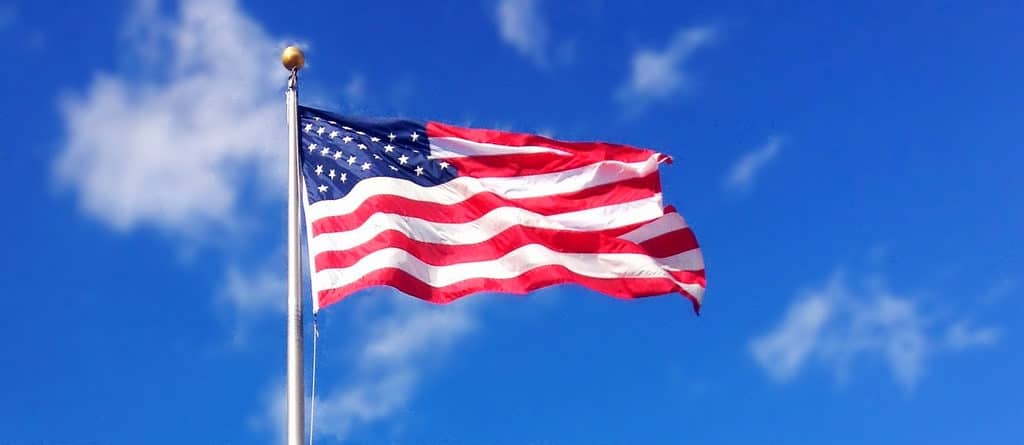As the presidential debates move into their second round, and as the public and commentators debate who won or lost, retailers can capitalize on opportunities.
For e-retailers that sell politically themed merchandise, an impassioned electorate and the flood of media attention paid to the candidates provide a ripe opportunity to acquire customers during the election cycle. Merchants must be keen on their merchandising and marketing, and, like a candidate, be ready to roll with the punches if they want to come out on top.
Some of the politically themed cookies made during election season by Cookies by Design.
Candidates’ messaging will change and evolve, and retailers must be mindful of that be ready to adjust, says Sanjay K. Dhar, the James H. Lorie professor of marketing at the University of Chicago. Merchandise ought to reflect the fact that politics is “short-cycle and high-velocity with very quick turnaround,” Dhar says.
Customized gift e-retailer CafePress Inc., No. 249 in the Internet Retailer 2016 Top 500 Guide, for example, can react quickly because it creates goods on demand, applying designs created by consumers to stock mugs, T-shirts and bumper stickers as they are ordered. Within days of Democratic nominee Hillary Clinton using the phrase “basket of deplorables” to characterize some of Republican nominee Donald Trump’s supporters, CafePress had about 100 products for sale riffing on that theme.
Retailers also must manage their online real estate much as they would in a store. Products that relate to something current in the political news cycle, for example, can be used as a virtual end cap to capture attention, giving retailers the chance to draw consumers deeper into their sites where they might find other goods that interest them, Dhar says.
Warren Royal, founder of online-only retailer Bobbleheads.com, says the first debate didn’t generate much of a sales bump for its standard candidate figurines—Clinton in a black pantsuit and Trump in a suit and red tie—but sales spiked for the non-presidential bobblehead of Clinton in a black-and-white-striped prison pantsuit. “It is currently one of our top sellers. We can’t keep it in stock,” Royal says, declining to release sales figures.
Bobbleheads.com features an image of the dark-suited Clinton and Trump dolls posed head to head as part of the retailer’s carousel of large images on its home page, but it is not doing debate-specific marketing. Also part of the image rotation is a photo of the retailer and manufacturer’s “Trump in Space” promotion that it launched—literally—in May by sending a Donal Trump bobblehead to an altitude of 103,339 feet, or almost 20 miles, via a weather balloon.
A CafePress spokeswoman says sales of election-themed products increased after the first presidential debate on Sept. 26, especially for Clinton merchandise, and election product page views jumped. Four of the web-only retailer’s top five designs purchased during the week following the debate were pro-Clinton, and the remaining design was for “Neither One 2016.”
Maheesh Jain, co-founder and chief marketing officer of CafePress, says political and election-themed merchandise is expected to account for about 10% of 2016 sales. The retailer incorporates search engine marketing and search engine optimization tools, personalized emails and retargeting into its marketing of political goods, but Jain declines to specify election- or debate-related keywords on which CafePress might bid.
In September, CafePress used a “Voice your choice” message as the first marketing message consumers saw on its home page image carousel. It linked shoppers to its “2016 Election HQ” page where consumers could shop by political party, candidate and merchandise type. It also features a “what’s hot right now” section of trending products.
Some post-Sept. 26 debate highlights (all percentages are week-over week changes following the Monday night event) on cafepress.com include:
- Sales of Clinton merchandise were 42.3% higher than Trump sales.
- Sales of Trump merchandise were static to slightly lower the week after the debate compared to the week before.
- Sales of Clinton merchandise increased 36.6%.
- Total candidate-related merchandise sales increased 16.4%.
- Unique page views of its Election HQ landing page increased 155.9%.
- Unique page views of all CafePress election landing pages increased 129.8%.
For an in-depth look at the intersection of e-commerce and politics, see the article “Election e-commerce” in the October 2016 issue of Internet Retailer magazine.
Favorite